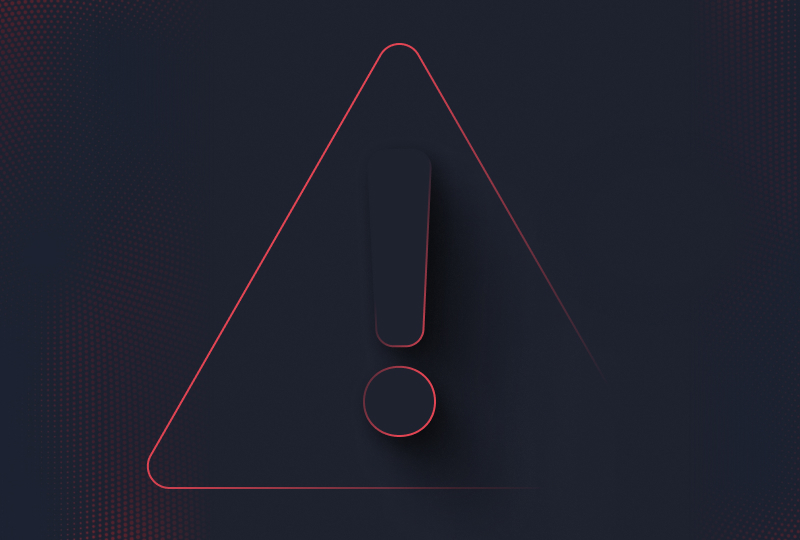2017-12-19

How to Build Playbooks

2 min read
The purpose of a playbook is to build scalable processes for your customer success team. A playbook helps you quality assure the basics of your customer success methodology. Playbooks help you align your teams, and help make on-boarding of new CSMs easy.
Think of Playbooks as a simple “if-this-then-that-manual" that help your CSM to be proactive.
General advantages of creating customer success playbooks:
-
Your CSM division will scale better as your company is growing (playbooks make training, and implementing changes easier)
-
You can add and roll out new playbooks at scale as you’re adding new features/products or encounter new solutions to customer challenges
-
You don’t need to rely on individual superstars to “figure things out”
-
Your clients experience a standardized process; you quality assure Customer Success
-
Playbooks help your CSMs to plan, organize and prioritize the most important tasks each day
-
You can pinpoint problems and improve parts of your overall strategy in a systematic way)
-
You can measure, award or follow up with your under-performing CSMs
Customer Success Playbooks have different levels of sophistication, and will vary based on each company’s feature-set and pricing.
Some companies start out building very basic plays, and some build advanced playbooks that are data driven and fully automated.
The 4 most common ways to build playbooks are:
-
Playbooks Triggered by Lifecycle Phase
-
Playbooks Triggered by Events
-
Playbooks Triggered by Schedules
-
Playbooks Triggered by the CSM
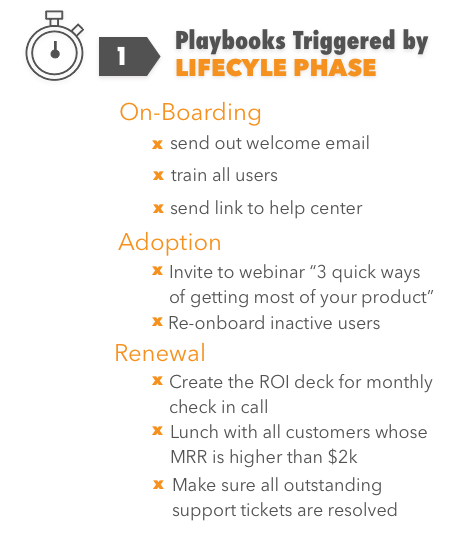
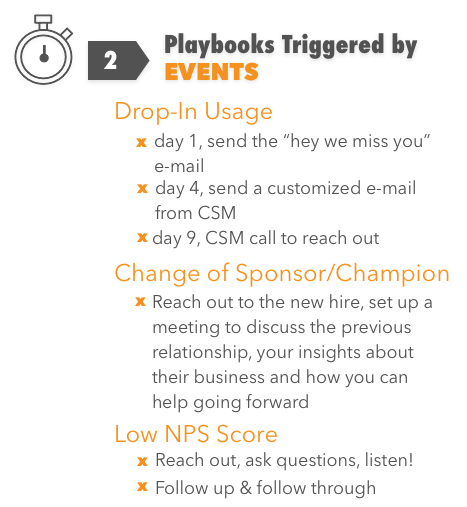
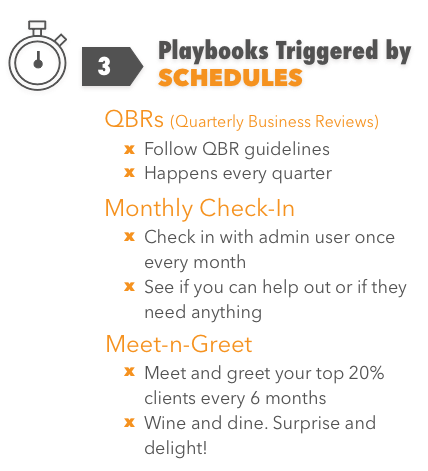
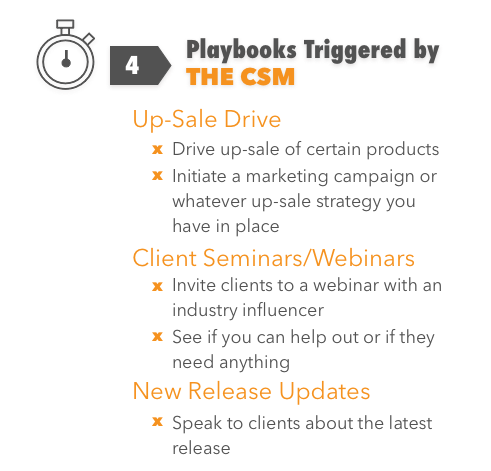
Hopefully these examples will help you get started!
Join our newsletter!
Receive the latest news, updates, and invitations to our events.
Being data-driven, are we there yet?
Being data-driven should be standard nowadays, but many organizations still struggle with it. Every company wants to be data-driven, but putting it into practice is the tough part.
How to transition from a cost center to a profit center in CS
Many in CS shy away from the commercial aspects of the business, but it's a missed opportunity to keep the conversation moving around maximizing and driving value for customers.
It's worth the risk: Identifying and managing risk in CS
When faced with risk in CS, it’s hard to know what the first step should be. We've developed an actionable plan based on experience from three CS experts.
Learn more about
Planhat
Drop your email and let us show you our platform!



